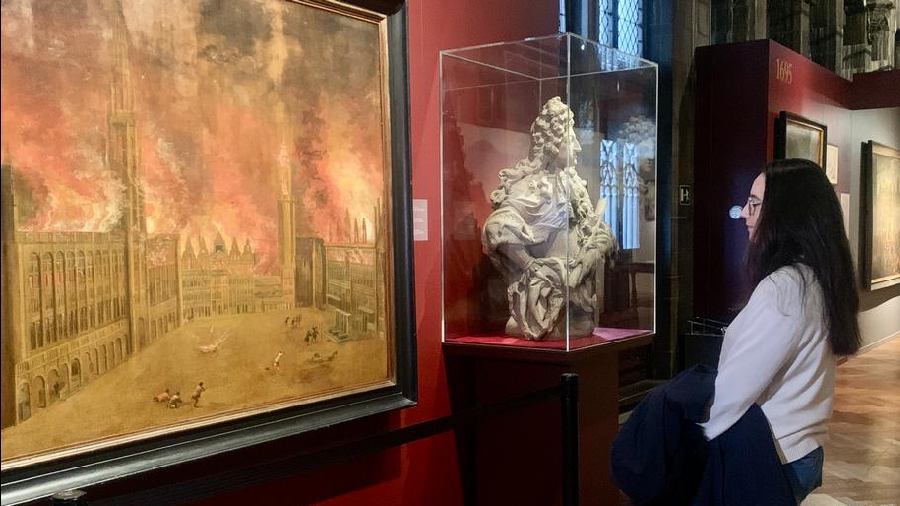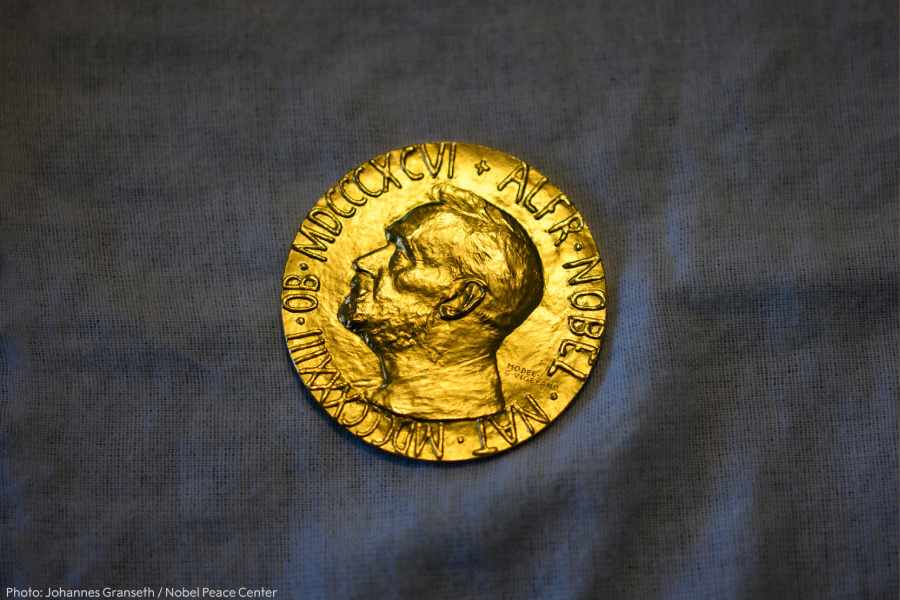Stephane Campion is trying out a new prescription for depression. Visiting his therapist to pick it up, Campion got to choose the remedy himself: Historical paintings and sculptures? Lace creation? The wardrobe gallery of Brussels' iconic statue Mannequin Pis?
Campion and Dr. Vincent Lustygier are part of a six-month pilot project in which doctors formally prescribe free visits to participating museums in the Belgiancapital Brussels as a way to coax patients out of the isolation of mental illness.
When he learned of the project, Campion was immediately on board. He's currently in recovery, having fought back the demons of depression for years, and is determined not to feel trapped again by fears and phobias.
He remembers how bad it felt to stay home for days on end, feeling unable "to dress, to go out, to get ready and see friends," he recalls. "It's difficult to take transportation."
Keeping depression down
Ironically, on this day Campion's preference, which Lustygier checks off on the written prescription, is literally a dark place — the Brussels Sewer Museum! Campion reasons that his unconventional choice doesn't reduce the chance of success because the point of this therapy is simply to "go outside and meet some other people."
Lustygier is one of 20 physicians taking part in the pilot and thinks it could be useful for all his patients. He says most of them are interested in the concept although "some didn't want to go because they're shy to go outside and to leave the settings where they live."
He's been using art classes and group visits to museums in his practice for decades, but says this new approach incorporates important elements.
Being given a written prescription rather than just a suggestion carries more weight with a patient strugging with motivation and the fact that he or she can bring along three other people allows someone who may be living on limited income to feel a sense of pride in providing pleasure to others.
"It's something new for us," Lustygier told DW. "And we're excited to use it."
All-around recovery effort
The pilot project was launched by Deputy Brussels Mayor Delphine Houba, who learned of a similar effort in Canada and wanted to try it in at home, both to help the increasing number of people suffering mental illness and the ailing cultural sector for which she's responsible.
"In Belgium numbers of depression have doubled in 10 years, so it's huge. There are so many people suffering," Houba tells DW. "We have nothing to lose. Doctors have nothing to lose, patients have nothing to lose. And here for the museum, it's just more public coming here…then we can share all this heritage."
A 2019 World Health Organization report cites more than 3,000 studies identifying a "major role for the arts in the prevention of ill health, promotion of health, and management and treatment of illness across the lifespan."
Strolling through Brussels' city museum, Spanish tour guide Maria Gomez Carmona says she thinks the initiative is a good one. "When I'm feeling bad or sad or [am] in a bad mood, I usually go to the Prada museum in Madrid and it helps me." Checking out the porcelain exhibit, Romanian visitor Mariuca Hristea agrees. "Life is so sad nowadays," she muses. "Seeing something beautiful makes you feel happier. It's that simple for me."
Treatment helps 'see the wonders of the world'
As he walks out of the Sewer Museum, Stephane Campion declares that even engrossing himself in something that's not conventionally "beautiful" has served its therapeutic purpose. "I feel better," he said. "I forget my problems and I see the wonders of the world."
Deputy Mayor Houba says even before the pilot project ends in March, she has evidence it's also perked up the sectors she was targeting. "I've already been contacted by other cultural institutions, also by other doctors willing to be part of the project," she shares. "Maybe it will take time to make people understand how it works and to come. But I think that even if it's only a few people, it's going to already be very positive."










